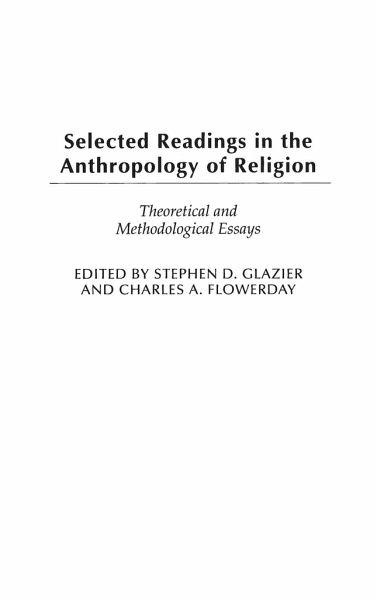
Selected Readings in the Anthropology of Religion
Theoretical and Methodological Essays
Herausgeber: Glazier, Stephen; Flowerday, Charles

PAYBACK Punkte
51 °P sammeln!
Brings together in one volume a number of key theoretical and methodological advances in the anthropological study of religion. Chapters cover important topics not ordinarily included in books dealing with the anthropology of religion (e.g., bipedalism, the study of alcohol, film and video images, notions of religious agency). In addition, this collection is intended to build bridges between anthropologists of religion and religious studies scholars. Over the last four decades, anthropologists have grappled with the dialectical relationship between the examination of cultures from the emic, or...
Brings together in one volume a number of key theoretical and methodological advances in the anthropological study of religion. Chapters cover important topics not ordinarily included in books dealing with the anthropology of religion (e.g., bipedalism, the study of alcohol, film and video images, notions of religious agency). In addition, this collection is intended to build bridges between anthropologists of religion and religious studies scholars. Over the last four decades, anthropologists have grappled with the dialectical relationship between the examination of cultures from the emic, or insider, perspective, and the etic, or outsider, perspective. Nowhere is this creative tension more evident than in the anthropological study of religion. In this volume, anthropologists and religious studies scholars come to terms not only with a landscape that has shifted fundamentally, but a landscape that is still shifting. Essays in this collection raise new and important issues for the anthropological study of religion in new and important ways. In intensely personal essays, a number of contributors address two fundamental concerns in the study of religion: (1) how should anthropologists deal with the beliefs and practices of others?, and (2) how should anthropologists deal with their own religious backgrounds and beliefs as these may affect their understanding of the beliefs and practices of others? A partial resolution to both questions is necessary before the anthropological study of religion can advance to a higher level.













